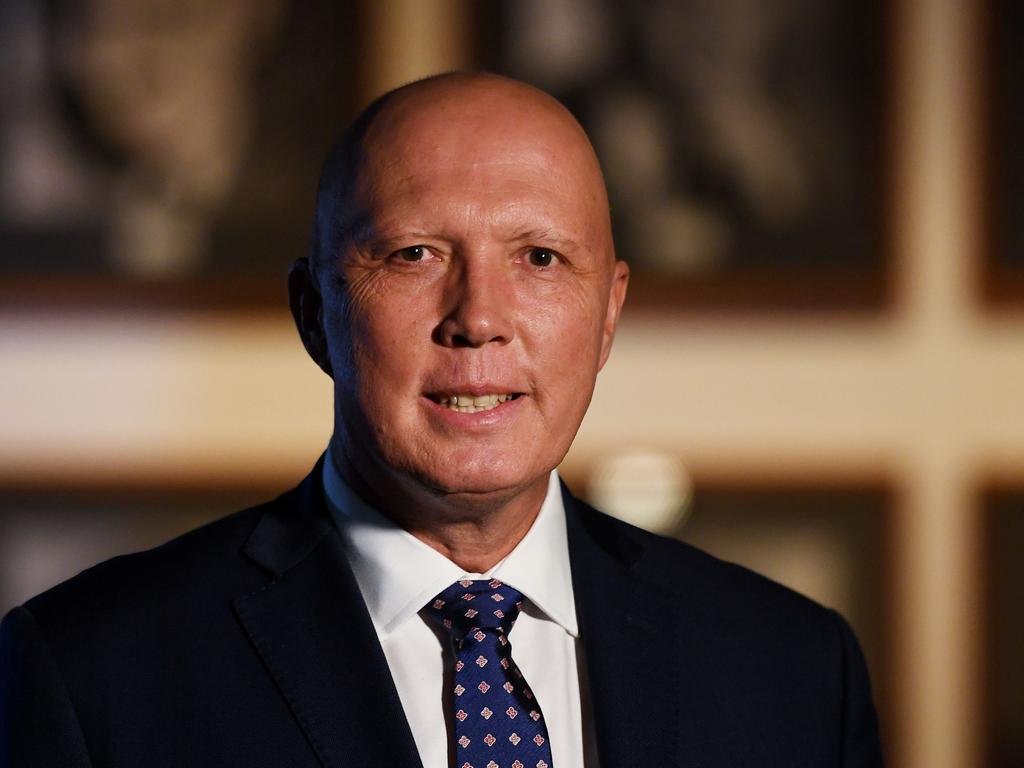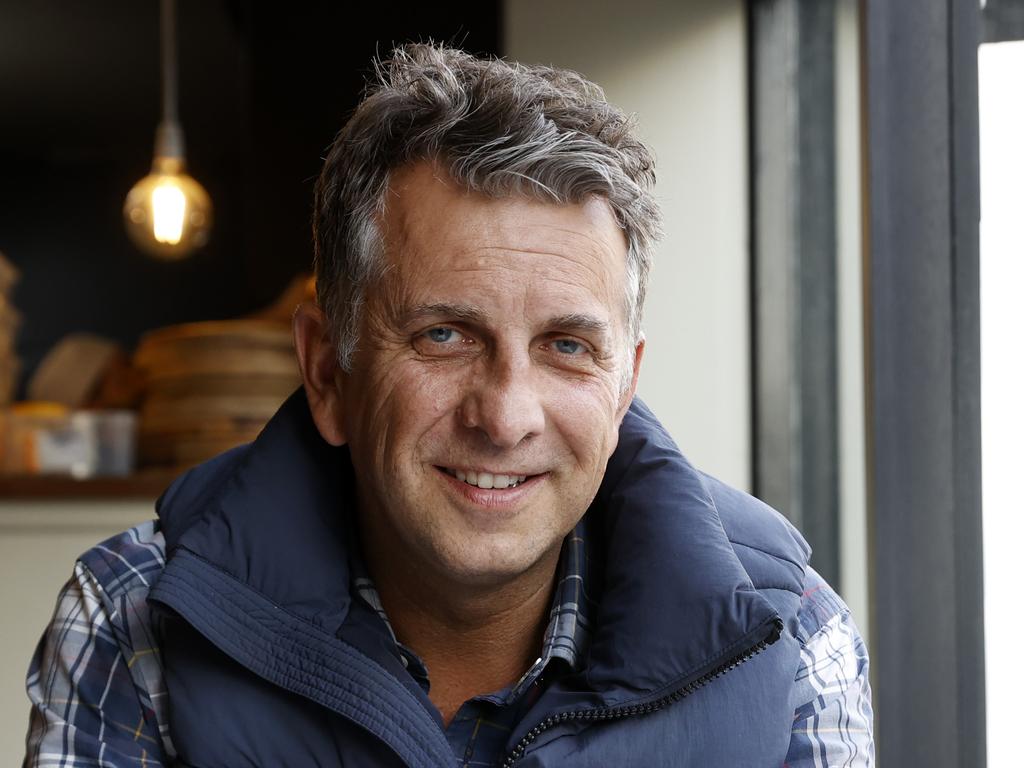
I have questions, so many questions. It’s not so much who the forgotten people are. Dutton referred broadly to outer suburban and regional voters (more on that afterwards), small business operators, tradies et cetera but who forgot them? Are they forgettable? Did they not vote? Did they forget? And just who is representing unforgettable Australians?
Now where was I?
Oh, yes. Last Monday was the best day to be in opposition. A new leader and leadership team. A bit of clear air and time to send a message. Each day thereafter will be worse. So, it seems a bit of blind hyperbole was in order, a bit of campaigning after all the campaigning had been done.
The Opposition leader has since made sensible remarks that the Liberal Party will not concede ground in the nation’s cities. It will continue to be a broad church. It has to be. The alternative is political oblivion.
The party is suffering an identity crisis that could become existential.
State by state on the mainland, excluding Queensland, the Coalition has only around one third of the seats in the House of Representatives; 35 of the available 112 seats are held by the Coalition in New South Wales, Victoria, South Australia and Western Australia. The Coalition holds 16 of the 47 seats in New South Wales (a loss of six), 11 of the 28 in Victoria (a loss of four), three of the ten in South Australia (a loss of one), and five of the 15 seats in Western Australia (a loss of five).
In Tasmania it was 2019 all over again with no change to seat representation, while in Queensland, the LNP lost one to the Greens as did Labor and holds 21 of the available 30 seats.
It’s worth remembering that the Nationals did not lose a seat in the 2022 election, well, not directly anyway.
While the captain’s picks and factional deals in New South Wales have rightly drawn criticism from within the party, it’s Victoria that exposes the Coalition’s biggest vulnerabilities. The Liberal Party has lost six federal seats in the state of Victoria since the 2016 election. That, combined with a terrible result in the 2018 state election shows the Liberal Party it is going backwards.

In a sense the Liberal Party’s identity crisis is one it shares with Labor. The professional classes in the inner suburbs tend to the progressive in terms of social issues at least. Seats the major parties could rely upon even a year ago, are now shifting on the Pantone colour chart, less blue and red, more green with a hint of teal.
The idea that the Liberal Party can shift further to the right and become more successful is bizarre. Could the West be won back this way? Does anyone seriously think that?
Let’s take a look at some seat results, starting in outer suburban Sydney. Greenway in the city’s west is a good one. The seat has small businesses in abundance stretching through suburbs like Seven Hills to Blacktown with new suburbs popping up here and there, a slice of aspirational Australia. The sitting Labor MO, Michelle Rowland won 48 per cent of the primary vote, the Liberal candidate 29. There was a UAP candidate, a PHON candidate, a Liberal Democrat and a few independents. The Greens got seven per cent. But even if we add the votes won by the parties and the indies on the right to the Liberal vote, the Liberal Party would have no chance of winning the seat. As it stood, two-party preferred, Michelle Rowland won the seats with a nine per cent swing towards her 53-47.
Scullin in Melbourne’s outer north features the aspirational suburbs, the freshly gentrified Preston and Reservoir venturing further north almost to Whittlesea. It’s rock-solid Labor and always has been. The sitting member, Andrew Giles received 47 per cent of the primary vote, down 13 per cent on 2019. The Liberal Party candidate received 29 per cent of the vote. The Greens got 10, UAP eight, PHON six, the Lib-Dems four. Even if all the right wing fringe vote could somehow shift to the Liberal Party, it would still not win the seat.
The newly created seat of Hawke in Melbourne’s outer southwest is a snapshot of our major cities’ urban sprawl. It features a high migrant population situated in the outer suburbs of Melton, Sunbury all the way out to a burgeoning Bacchus Marsh and Ballan. First home buyers abound. Labor’s Sam Rae, who won the seat, received 37 per cent of the vote, the Liberal candidate 26. There was an independent who campaigned on local issues who received eight per cent of the vote. The Greens received nine per cent. There was a Melbourne Cup field of fringe right wing candidates, including the sov-cit Great Australia Party and the Australian Federation Party and the diehard Victorian Socialists. Bless. PHON received five per cent and UAP seven per cent, both above their national averages. But no amount of vote shifting from the votes on the right is going to give the Liberal Party 50 per cent plus one in Hawke.
There is a review of the Liberal Party’s performance underway led by Victorian Senator Jane Hume and party strategist, Brian Loughnane. It should be done quietly, and its results made available to all its parliamentary representatives. Just as Labor’s report into losing the 2019 unlosable could easily have been explained in two short words: Bill Shorten, the Liberal review might for brevity’s sake be curtailed to ‘Scott Morrison’. The party needs not only to put distance between itself and the former Prime Minister but be seen to be doing so. Now.
The Liberal Party can’t give up on its inner-city seats by shifting to the right, nor can it give up on the regions and the aspirational suburbs.

The next test for the Liberal Party comes in November with the Victorian state election. Labor Premier Dan Andrews is vulnerable, no doubt but the Victorian Liberal Party is perceived as a basket case and will almost certainly be battling on two fronts with Teals likely to run in what had been before the 2018 state election, Liberal blue-ribbon seats.
The answer is not an ideological shift. The party must go back to its grassroots, expand them, offer voters better candidates, more locals in tune with their electorates, discard the professional time servers, create policies that don’t ostracise voters, and argue the not insignificant point that they offer the capacity to influence lives and make change while the Teals and Greens can only expect to sit on the cross benches.
It won’t be easy, but it isn’t meant to be. It’s politics in opposition and it’s hard work. An ideological shift effectively vacating what were safe seats would be a disaster and plunge the party into political nomadism.
If you want a spoiler on how that story ends, take a look at the shape of the Liberal Party in Western Australia.







After his elevation to the Coalition leadership, Peter Dutton took the opportunity to issue a battle cry to win the hearts of Australia’s forgotten people.